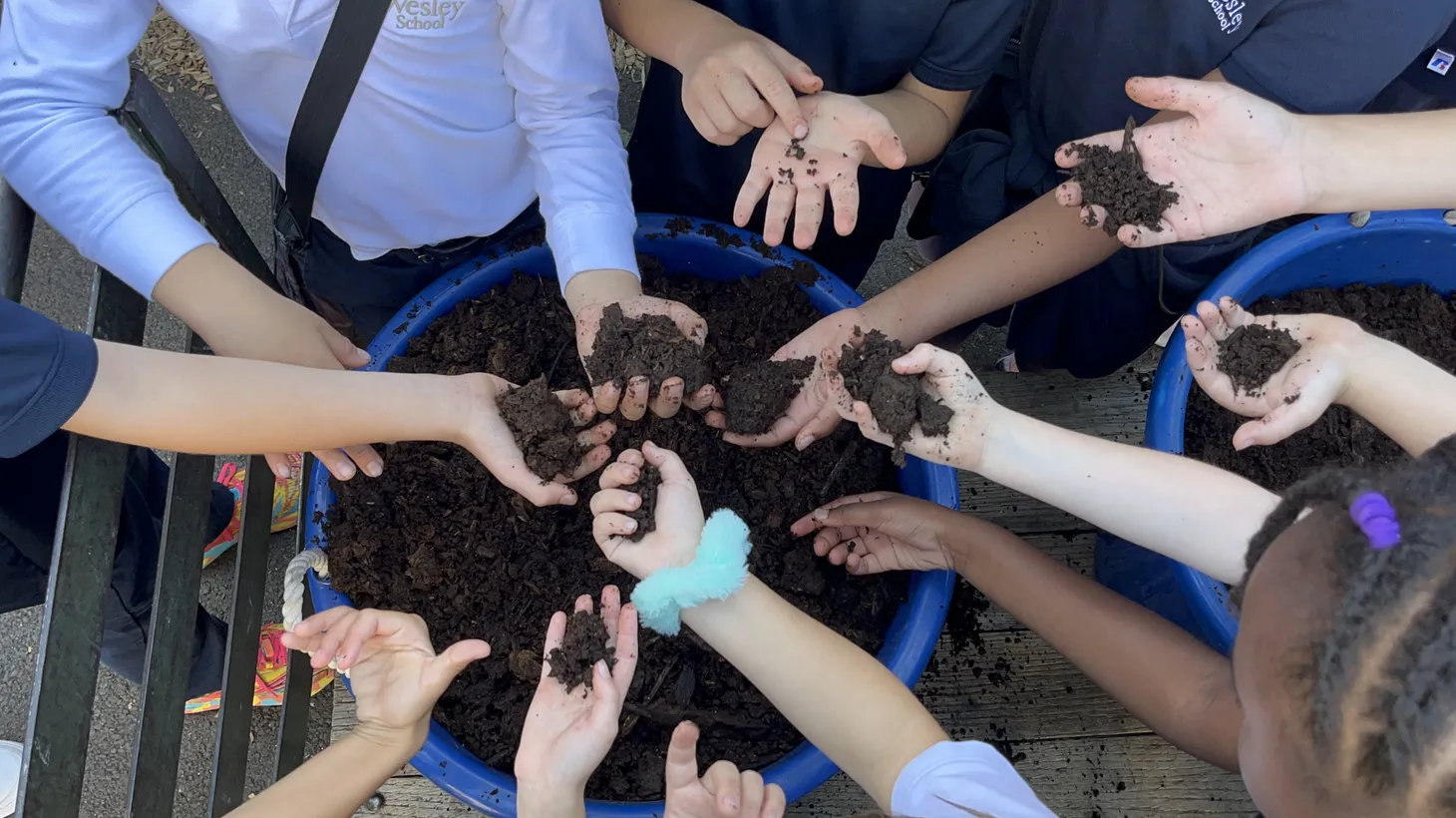The anticipation among the children at The Wesley School in North Hollywood has been building for a whole year. A row of five-foot-tall containers stands behind local farmer and composting consultant Steven Wynbrandt, adorned with a banner proudly declaring, “5,220 lbs of food waste saved from landfills,” courtesy of the K-8 students. As the first container, which has been curing for a year, is about to be opened, the excitement is palpable.

Wynbrandt invites the students to witness the unveiling: “Ok! Want to crack this baby open?” The enthusiastic “YEAH!” from the kids fills the air. With each tie holding the tarp closed, they bombard him with questions: “Is it going to smell?” “What’s it going to look like?” “Is it going to spill out?”
Upon breaking the final tie, Wynbrandt reveals the result: rich, black, moist compost, prompting one student to exclaim, “It doesn’t stink at all! It smells earthy!” The significance of diverting 5,200 pounds of food waste from landfills is substantial for the climate, as decomposing food in landfills produces methane, a potent greenhouse gas. Composting transforms organic material, minimizing methane production.
While it would have been simpler for the school to dispose of food waste in a city-provided green bin, following California’s food waste recycling law, science teacher Johnna Hampton-Walker emphasizes the importance of visibility. She states, “When it’s invisible like that, they don’t see it. They know, but it doesn’t sink in.”
Seeing the finished compost pile made a lasting impression on sixth grader Finn Hollier. “That’s my orange chicken in there,” he realizes. “That’s not just like any food. Somewhere in there is my food.”
The school plans to use the compost on campus plants, offer it to families for home use, and donate any excess. Fifth grader Kingston Mitchell is excited about contributing to the planet. “It feels good that you’re doing something that helps the planet, instead of just sitting and watching it get destroyed,” he remarks.
Compost consultant Steven Wynbrandt sees these programs as empowering, especially for children feeling overwhelmed by the environmental crisis. He collaborates with schools to initiate composting programs, aiming to make a positive impact. One student, inspired by the initiative, took climate action beyond school, organizing a lemonade stand fundraiser for the NRDC and advocating for compostable utensils in the school cafeteria.
Therapist and social worker Jennifer Silverstein views the composting program as an effective means of climate education, offering a more positive perspective. She emphasizes the importance of showing children that despite challenges, adults are actively working to improve the situation. To help kids grasp the gravity of climate change, she suggests allowing them to move, be in nature, and participate in collective action during discussions.
Fifth grader Leo Castagnetti finds the composting project reassuring, stating, “Knowing I’m a part of something good just helps me sleep at night. If we can just work together, it’s all going to be okay, and everything’s going to work out fine.”